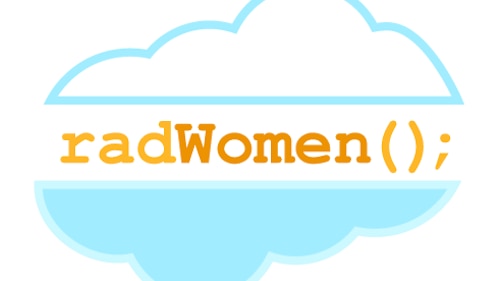When Allison Park was starting her career in IT in the late 1990s, she hit a wall. Not a personal wall, or the end of her career ambition. Quite the opposite, in fact.
“The developer space was a boys’ club,” she recalls of how she often felt dismissed by her male colleagues. “[There was one time] I reached out to my manager and told him, ‘I’m having difficulty with this and I’m trying to understand it.’ He was curt in his response and seemingly unwilling to help me.”
She admits she didn’t yet have the support to advance to the higher levels of her chosen career path. In fact, she left the technical track for that very reason and, for a time, shifted to management. It didn’t stick. Today she is a Chicago-based solutions architect at a firm that helps implement Salesforce for enterprise clients. Getting back on track was a long journey that involved hitting those walls again and again and relying on herself to up-level her skillset.
Across most tech companies, women still make up the minority of the employee base — most recent studies put the figure around 20-25% — and moving up the ladder is comparatively more difficult. According to one study, 20% of women age 35 and older occupy junior roles, compared to only 6% of men in the same age bracket. There are many theories as to why this phenomenon occurs, although none are conclusive. But stories like Park’s keep resurfacing.
A “Radical” approach to gender equality in tech
For Park, and more than 400 women like her, one part of breaking through that glass ceiling was discovering RAD Women (Radical Apex Developers). Founded in 2015 by four Salesforce experts, it’s a unique program that teaches Salesforce admins how to code. Through a series of 10-week courses, participants learn the finer points of the Apex language, which can help them be more effective in their admin roles and move into developer, architect, and engineering lead roles.
In other words, it’s a resource that empowers women to thrive and ultimately lead in a sector that has typically been male-dominated. RAD Women’s founders are sharing their lessons and journey with other women to collectively ignite a shift.
True, the Salesforce admin community may just be a tiny sliver of a tech industry expected to reach $5 trillion in value this year. But what RAD Women co-founders Angela Mahoney, Kieren Jameson, and founding coach and VP of Curriculum Innovation Melissa Hansen realized was they had a unique opportunity to make a dent in increasing gender diversity in the best way they knew how.
“There’s this huge pool of women who have not been historically routed into the coding side or given those pathways,” explains Mahoney. “It seemed like this was a perfect opportunity to say, ‘Well, if the only thing missing is the encouragement piece — some guided coaching bringing all these things together into a curriculum — we could do that.’”
Mahoney and Jameson, who writes the popular Women Code Heroes blog, first connected via different efforts to learn code and teach it to others as part of the process. Mahoney, who knows Hansen through the developer community in Portland where they’re both based, asked her to be part of this fledgling effort by coaching the first round. Each had different approaches to technical careers, with varying degrees of support along the way. They knew they were well-positioned to give back and help narrow the gender gap in the tech industry.

The original value prop was to set up a small program through word of mouth for women who had at least two years of admin experience. This wouldn’t be about teaching women the “point-and-click” side, as Mahoney explains, but giving them a grounding in coding on the Salesforce platform.
“It’s not a necessary progression for every admin to become a developer,” says Mahoney. “You can stay an admin and be an awesome admin. But if you want to start adding in the coding side to become more technical and be able to build levels of automation you simply can’t with the declarative tools, that’s when you need to start building up your understanding of object-oriented programming.”
To put it another way, Mahoney explains, you can know everything about operating your car and keeping it running smoothly. But once you learn what’s going on under the hood, that opens up a new world of opportunities.
Small beginnings, but an explosion in demand
Their pilot program was in the fall of 2015, with three groups each including two coaches running virtual lessons for eight learners. The RAD Women leaders collected tons of feedback and surveyed the students frequently. They started a Twitter handle, and Jameson began promoting the program on her blog. Word spread — soon they had a waiting list of interested women and they couldn’t expand the program fast enough. By 2017, it grew to 12 sessions and nearly 100 participants, coached by a network of willing volunteers Mahoney vetted carefully. The feedback they were getting convinced them they were onto something.
“Over and over again, they were telling us they got stuck in the same spot: ‘I don’t think I can do this, I don’t think this is for me, I’m thinking about dropping out,’” says Hansen. “And for us, it was like, ‘Everyone gets stuck on that. You’re going to have to do it five, 10, 20 times before it really starts to stick. You should keep doing it because you’re right where you should be.’”
Today, RAD Women boasts a coaching roster of 50, and now even includes a good amount of program alumni volunteering their time to mentor the growing list of learners. There are so many interested participants, in fact, the organizers have set up a lottery system for applicants.
And the feedback continues to be gratifying. Learners gush about the benefits of the program, through the official surveys RAD Women sends out. Some of the best they get is when they hear of participants having “aha!” moments when complicated coding sequences start to make sense.
One such piece of feedback came from Lindsey Fivecoat, a recent graduate of the RAD Women Intro to Coding course who works as a Salesforce admin for Silicon Labs in Austin. She admits it took some time before the course material began to crystallize for her. But thanks to the patience of her instructors, she found the right support system from the RAD community and avoided the frustration of her earlier career.
“I can go back to Trailhead and look through the Apex stuff I’d read a year prior and remember how it made no sense,” she says. “Now I can work through the exercises. That foundation is what helps break through that mental leap of being an admin to being able to do a whole lot more.”
That includes, she reports, having a safe space to ask those “quote-unquote ‘stupid questions’ I was often afraid to ask in a room full of guys because I was afraid of being judged.”
In the end, that’s what it’s all about for the RAD Women co-founders. They wanted to make a difference with underrepresented populations, do their part to reduce the gender gap, and pay it forward for admins looking to jump into development. But even they admit the gratitude they hear leaves them in awe of what they’re accomplishing.
“It’s emotional for us because when we started out doing this, the goal was really only to create a program so women could move on with their careers,” says Mahoney. “And when we see that actually happen, it’s like, ‘Oh my God, it’s working.’”
Learn more about RAD Women and their story by staying tuned to all the action at TrailheaDX on Salesforce Live!
RAD Women is always looking for more developers of all levels willing to mentor women learning Apex. Contact them today to learn how you can get involved!
























